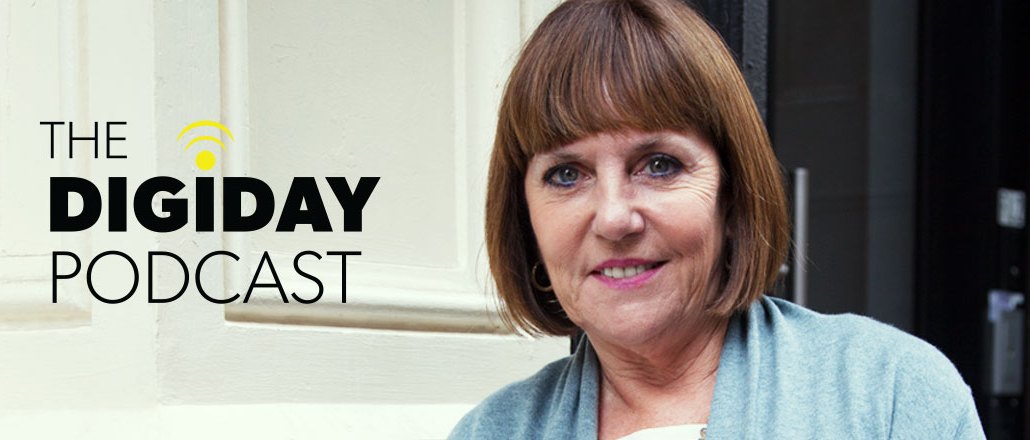MediaLink’s Wenda Harris Millard: Programmatic is a phenomenon in itself

Programmatic has come to be widely accepted, and marketers are beginning to see the benefits of intelligent use of data.
That’s the realization that MediaLink’s President and COO Wenda Harris Millard has had in consulting to publishers, brands, marketers and technology companies on their organizational design.
“There’s no question at all that programmatic buying and selling has gained a level of acceptance, traction and usage at a speed I’ve never seen before,” she said. “It is a phenomenon in itself.”
In a converging media landscape, everyone competes with everyone, she said on this week’s episode of The Digiday Podcast.
Other highlights of the half-hour discussion:
Programmatic is the future.
While some publishers may feel commoditized by programmatic advertising as they had with ad networks before, programmatic is beneficial, Millard said. It doesn’t replace solid marketing solutions but provides more resources to put toward them.
“The intelligent use of data with technology can have very promising results and has for many publishers,” she said. “I think when publishers understand what this can do and they see the results for part of their inventory, there’s a sigh of relief. It can drive up CPMs.”
MediaLink is not a classic consulting firm.
MediaLink defines itself as a strategic advisory and business development firm driving growth for Fortune 100 companies, navigating and connecting Silicon Valley, Madison Avenue, Hollywood and Wall Street. But it’s not a classic consulting firm, argued Millard.
“We are very pragmatic — it’s all about having that operational lens when we design the strategy,” she said. “We are professionals in operational roles from all of those kinds of companies. So when we design strategy, our clients can execute it.”
The media landscape is converging.
The media landscape is no longer siloed; it is a chaotic, converging world with marketers, publishers, agencies and technology companies all thrown into the mix. Everyone is competing with everyone, as evidenced by the recent Verizon-AOL deal and AT&T-DirectTV deals.
“The very definition of competition has changed, and we are Aspirin to the collective headache that everyone has,” she said.
Measurability still perturbs marketers.
In Millard’s experience, marketers still struggle to figure out how to spend their marketing dollars — which platforms to prioritize and how to measure their campaigns.
“We still don’t know how to answer the question, ‘If I move $10 from this channel to another channel, what do I gain, what do I lose?’” she said. “Measurability is still a very, very big issue.”
The ad blocking crisis is for the betterment of the industry.
Millard said that she’s never forgotten what one creative director told her at Cannes a couple of years ago: Advertisers needed to stop interrupting conversations and become the conversation. While she’s concerned about ad blocking, she thinks it ultimately will result in fewer, better ads.
“It’s not a doomsday scenario for me; it is an opportunity to clean up advertising in the digital space,” she said. “We will see fewer pages that look like Tokyo or Times Square at night.”
More in Marketing

YouTube’s upmarket TV push still runs on mid-funnel DNA
YouTube is balancing wanting to be premium TV, the short-form powerhouse and a creator economy engine all at once.

Digiday ranks the best and worst Super Bowl 2026 ads
Now that the dust has settled, it’s time to reflect on the best and worst commercials from Super Bowl 2026.

In the age of AI content, The Super Bowl felt old-fashioned
The Super Bowl is one of the last places where brands are reminded that cultural likeness is easy but shared experience is earned.





